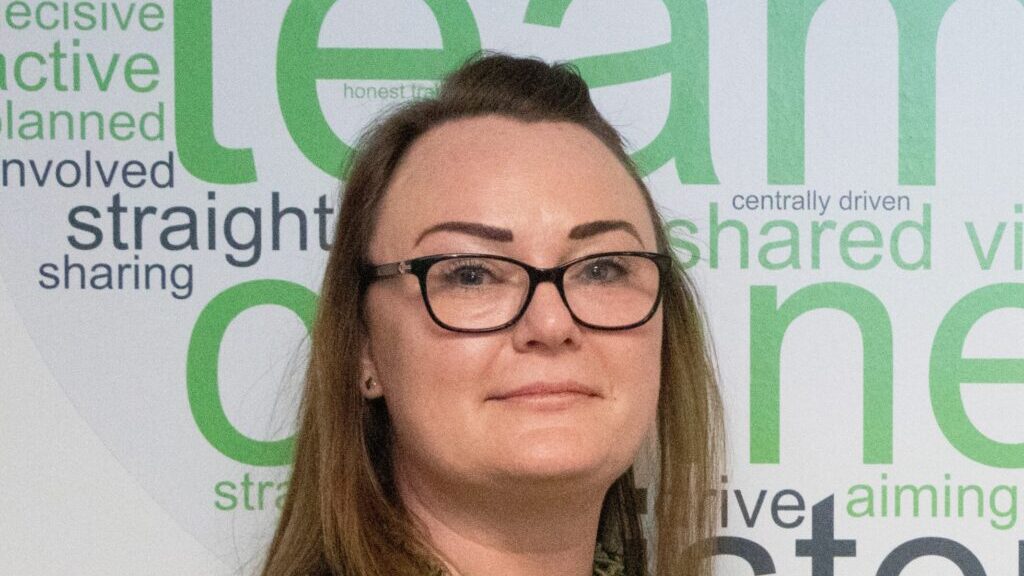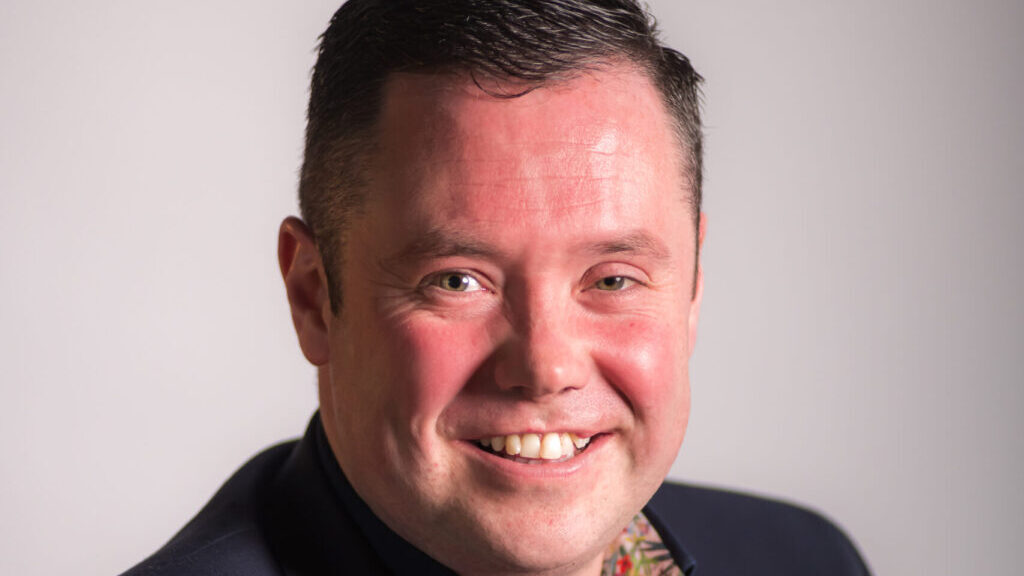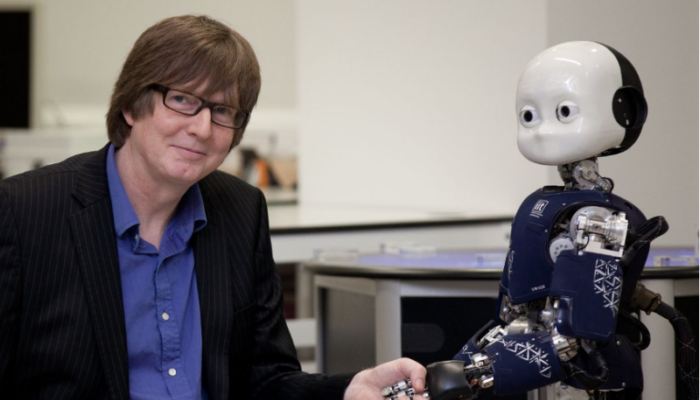Leader’s spotlight: Shifting negative attitudes

Director of care quality Cheryl Baird explains how Orchard Care Homes is aiming to shift negative attitudes to people living with dementia through its Dementia Promise.
Launched in September 2022, the new Dementia Promise initiative embodies Orchard’s commitment to challenge the negativity and inequalities often experienced by people living with dementia in care homes.
The Dementia Promise aims to: remove conscious and unconscious stigma associated with dementia by encouraging others across the sector to stop using derogatory, blaming language; promote genuine collaboration; and provide people with dedicated communication lines with a dementia specialist, regardless of whether they use Orchard’s services.
“As a group we have seen the pitfalls in dementia care within social care,” Baird says. “Dementia care hasn’t really changed in the last 30 years. When health and cancer care seem to have moved on, dementia care seems to have been stuck in a bit of a rut. People are moving into care homes with a diagnosis of dementia and carers are trying to support them with all the goodwill in the world, but they are really taking away their individuality and personality.”
Work on the programme began when Orchard updated its policies on dementia care and mental capacity at the end of 2020 and beginning of 2021 after the height of the Covid pandemic. “It would have happened anyway, but we saw how distressed people living with dementia were when we were forced to lockdown, so we had to start thinking quite quickly about how to support them,” Baird says.
“From there we realised people weren’t always being given the opportunity to be individuals and that’s our main aim. The Dementia Promise is grounded in people’s abilities and their individuality and all we are doing ultimately is seeking to normalise their life. Just because they live in a care home doesn’t mean they can’t enjoy a life like everyone else.”
In developing the model, Orchard began by looking at its four designated dementia Reconnect Communities.
“We welcome people into our Reconnect Communities who have predominantly been in a mental health ward and have been on one-to-one or two-to-one care because their distress response behaviours are seen as so risky and care providers don’t feel that they can support them,” Baird says.
Orchard’s Reconnect Communities are also expanding as part of the Dementia Promise with more being planned, adding to the four established communities in the Northeast, West Yorkshire and Warrington. Each community houses around 18 people and includes kitchen and living room spaces as well as breakout areas to encourage a homely and calming atmosphere.
Staff ratios are high, at one carer to three people typically, to ensure that social needs and engagement opportunities are met and there is more time to focus on meaningful engagement to reduce anxiety and distress levels.
“It’s really thorough, focused, individualised support,” Baird explains. “People get far more time and support to regain their identity and some skills. We had people coming in who weren’t verbalising and now they are making their needs known and going out and shopping or going to the pub and planting in the garden. It’s a real turnaround for many of those now living with us.”
Each community is staffed by specialist employees who are paid at a higher rate, approximately 20% more than care home workers, due to the demanding, high-intensity nature of the care provided.
“It can be quite tough and you have to be quite a special person, but it’s so rewarding when you see the change in the people you care for,” Baird explains.
Specialist facilities are provided in the communities to help encourage freedom and independence, including a workshop, laundry and a bowling green.
“The workshops are a great resource and we have supported with tasks like simple mending and building bird houses,” Baird says. “One gentleman loves to simply take things like bits of machinery apart and put them back together again.
“A lot of care providers are really risk averse so we had a lot of people being nervous about the safety of the workshop, but we had put mitigating risk assessments into place so that some of the gentleman can go in and safely fix things and paint the walls. We are just trying to normalise people’s lives.
“We have really focused on the environment and making sure there’s lots of space to walk around and people are not on top of one another. Each sitting area has a kitchenette, so they are encouraged to make their own tea and get a snack to make it more homely.
“We have some beautiful outside spaces where people can go and can get fresh air and be meaningfully occupied with things like raised planters and a bowling green at one of the homes. The communities are more people-led as we like them to have more freedom to dictate the way the day goes. We are focused on positive outcomes and independence and giving people their identity back.
“When we saw the impact our work was having on the reduction in distress responses, it led us to developing our Dementia Promise. We wanted to look at rolling out a similar approach for people in our homes who did not have such distressed responses.
As part of its Dementia Promise, Orchard committed all staff receiving bespoke, evidence-based training. The programme comes in three levels catered towards caring for people with different degrees of dementia.
“All people who work in the organisation whether they work in IT or the kitchen for example will receive Level 1 training,” Baird explains.
“Staff who support anyone in our care homes will do Level 2, including our maintenance operatives. Level 3 is in-depth, mainly for our Reconnect Communities and we will then open that up to advocates across all of the homes.
“In Level 3 we start to focus on what can trigger distress in the environment. That could be noise. We get people thinking about all of that. A lot of care homes can be quite infantilising with big bright colours and big pictures and that can sometimes cause people distress. Our Reconnect Communities are quite calming with lots of different spaces such as reading nooks and planting rooms. If they want a bright red bedroom, they can still have it, but empower those who have, in some respects, been written off. It’s about empowering carers to advocate for people living with dementia and help them live a full life.
Investment in technology is a further core component of the Dementia Promise. “We already had Person Centred Software’s electronic care planning and Medecare medication management when I joined, which has been invaluable,” Baird explains.
Introducing the intelligent pain assessment tool PainChek, was further instrumental in supporting the Dementia Promise. Using AI technology, PainChek recognises and records facial muscle movements indicative of pain. The system then calculates an overall pain score and stores the result which supports the implementation of pain management interventions and the ongoing monitoring of their effectiveness.
“We have carried out over 50,000 PainChek assessments,” Baird says. “PainChek supports us with our falls prevention work. We are using it with everybody. The main benefit is making sure people have proper prescribed pain relief which has helped drive down anti-psychotic use. If people have fallen over, we can see if they have hurt themselves if they can’t communicate that. We use before and after PRN medication to test its effect, and we have managed to get people’s medications changed so that they are more comfortable. It’s helped drive down multi-medication use because some people were on lots of pain medication and we have been able to use the data to go back to the prescribers and look at possible alternatives.
“We are using that feedback to see which of our homes need training next,” Baird says. “It gives us that pre- and post-data and allows us to monitor that things are going in the right direction.”
With Orchard having implemented fully integrated care systems, Baird is able to pull all of that data every month into a metrics spreadsheet, which she sends out to the whole organisation, including the board, for transparency so that they can see where improvements need to be made.
Implementation of the new technology has helped achieve impressive results with medication errors down by 50% and falls reduced by 16% in a year.
More recently, Orchard has implemented Access Care Compliance for its audits which includes feedback from staff, residents, medical professionals and families and friends.
“With the Access Care Compliance audits I can see very quickly where a home needs focused support and either myself or my team will go in and provide that support,” Baird says.
The implementation of technology has helped Baird and her team drive care quality levels, with all but one of the provider’s 23 homes now rated Good by the CQC.
“We have internal quality monitoring inspections aligned to the KLOEs but go into a bit more detail,” Baird notes. “We are quite harsh on ourselves. We measure ourselves as either low risk, medium risk, high risk or very high risk.”
Baird says she had no doubt that Orchard’s one remaining Requires Improvement home, Nesfield, would be rated Good if inspected now and expressed her frustration at the 18-month wait the service has endured since its last inspection.
“That home is not Requires Improvement and we can’t get that rating changed because there is no risk around it,” Baird complains.
The care quality director described the CQC’s inspection regime as “very inconsistent” adding her hope that its new framework which is expected to be rolled out by the end of the year would provide a “truer picture of care quality”.
“It’s really difficult for them to come into a home and say what has been good, bad or indifferent in one or two days, you need to look at a longer time frame of what has been going on,” Baird says. “I don’t see how the current way of working gives a true picture of care quality with so much dependent on what is going on at the home on that particular day. We hope the new model of inspection will change this.”
Despite the sluggish inspection system, Baird expresses confidence in reaching Orchard’s target of 100% Good or Outstanding in the not too distant future. The Dementia Promise looks set to play a key role in helping Orchard achieve that goal.



